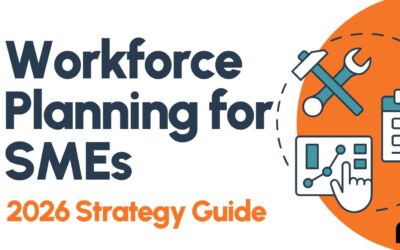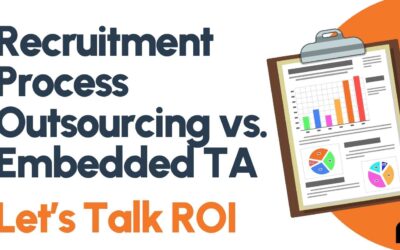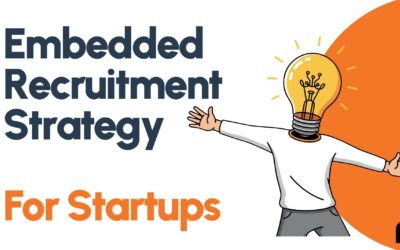Critical thinking in hiring is undeniably one of the most challenging competencies for organisations to master, yet it holds a place of paramount importance in managerial functions due to its strategic and profound impact. According to a McKinsey study, the correlation between talent quality and business performance is dramatic, with superior talent being up to eight times more productive. For organisations striving for growth or even survival during challenging times, the task of recruiting A-list talent, thought leaders, and subject matter experts is essential. Often conducted under stringent time constraints, the hiring process is akin to committing to a long-term relationship after just a few brief encounters.
Traditionally, the cornerstone of assessing talent has been the job interview, which, unfortunately, often falls short of evaluating one of the most critical competencies for accessing candidates.
The conventional interview process typically follows a question-and-answer format, wherein candidates are posed with standard inquiries such as: “Tell us about your background,” “Why do you want to work for us?” “Share a challenge you faced at work and how you dealt with it,” and similar queries. These questions, while informative in their own right, often miss assessing a vital skill—logical reasoning.
What is critical thinking in hiring?
Critical thinking is a multifaceted ability that entails seeking information from diverse sources, evaluating its credibility, and determining its relevance and veracity.
Classified as a higher-order skill, critical thinking encompasses a spectrum of abilities, including the capacity to reason effectively, construct sound arguments, and identify flaws, biases, logical inconsistencies, and gaps in a given situation.
Distinct from creative thinking, which focuses on generating new and innovative ideas, critical thinking demands that candidates meticulously and logically analyse facts and formulate well-reasoned judgments.
How to build a curious culture within an organisation?
To build a curious culture within an organisation, it is imperative to recognise the pivotal role that strategic thinking plays in the hiring process. The conventional Q&A interview may not suffice in assessing this crucial skill. Organisations seeking to foster a culture of curiosity and innovation should consider incorporating strategies and techniques that explicitly evaluate a candidate’s problem solving abilities. This approach ensures that talent acquisition aligns with the broader goal of nurturing a workforce characterised by intellectual curiosity, adaptability, and the capacity to think critically in an ever-evolving business landscape.
Practical steps that talent acquisition teams can implement
Define critical thinking competencies:
Identify the specific problem solving competencies that are most relevant to your organisation. This may include skills such as analytical thinking, decision-making, and logical reasoning.
Incorporate behavioral interview questions:
Develop a set of behavioral interview questions that assess analytical thinking skills. These questions should prompt candidates to provide real-life examples of how they have applied these in previous roles. For example:
“Can you share an instance where you had to analyze complex data to make a decision?”
“Describe a situation where you identified a problem, evaluated possible solutions, and implemented a successful resolution.”
Utilise situational interviews:
Create hypothetical scenarios related to the job role and ask candidates how they would approach and solve these challenges. This approach allows you to gauge their problem-solving and decision-making abilities in a practical context.
Assess cognitive ability:
Consider using cognitive ability tests or assessments designed to measure critical thinking skills. These assessments can provide valuable insights into a candidate’s ability to analyze information, draw logical conclusions, and solve complex problems.
Review work samples:
Request work samples or projects from candidates that demonstrate their abilities. Analysing their past work can reveal their capacity for logical reasoning, innovative problem-solving, and attention to detail.
Panel interviews:
Conduct panel interviews where multiple interviewers with diverse perspectives evaluate a candidate’s responses to strategic thinking questions. This approach can provide a more comprehensive assessment.
Evaluate communication skills:
Critical thinkers often excel in communication. Assess a candidate’s ability to articulate their thought process, explain complex concepts, and engage in constructive debates during interviews.
Collaborate with hiring managers:
Ensure close collaboration between talent acquisition teams and hiring managers. Hiring managers can provide valuable input on the specific critical thinking skills required for the role and participate in the assessment process.
Provide training and resources:
Train interviewers and assessors on how to effectively evaluate critical thinking skills. Offer resources and guidelines for conducting interviews that focus on critical thinking.
Score and compare candidates:
Develop a scoring system or rubric to objectively evaluate candidates’ critical thinking responses. Compare candidates based on their performance in critical thinking assessments.
Continuous improvement:
Regularly review and refine your critical thinking assessment methods based on feedback and the evolving needs of your organisation.
By implementing these practical steps, talent acquisition teams can effectively evaluate critical thinking in candidates and contribute to building a workforce that values and excels in this essential skill.
Explore our FAQs on Critical thinking
What is critical thinking, and why is it important in the hiring process?
Critical thinking involves the ability to analyse information, make reasoned judgments, and solve complex problems. It’s crucial in hiring because it helps organisations identify candidates who can adapt, innovate, and make sound decisions, contributing to overall success.
How can I assess critical thinking skills during interviews effectively?
You can assess critical thinking skills by using behavioral interview questions, situational interviews, cognitive ability tests, and by reviewing work samples. These methods help evaluate a candidate’s problem-solving abilities and decision-making processes.
Are there specific industries or roles where critical thinking skills are more crucial?
Critical thinking is valuable across various industries and roles. However, it is especially vital in professions that require complex problem-solving, such as management, engineering, healthcare, research, and data analysis.
What's the difference between critical thinking and creative thinking in the hiring process?
Critical thinking involves analysing information and making rational judgments, while creative thinking focuses on generating innovative ideas. While both are valuable, critical thinking often emphasizes logical reasoning and problem-solving, while creative thinking explores new possibilities.
How do I ensure fairness and reduce bias when assessing critical thinking skills in candidates?
To ensure fairness and reduce bias, use standardised assessment methods and ensure that interviewers are trained to evaluate critical thinking objectively. Additionally, establish clear evaluation criteria and involve multiple assessors when possible to reduce individual bias.
For more information on how partnering with Rent a Recruiter can help drive your companies growth, contact our team today for a friendly chat.
Hiring has never been easier with Rent a Recruiter. We offer outsourced recruitment services specialising in global Talent Acquisition for IT, Engineering, Manufacturing, Construction, Finance, and Healthcare. Embedded recruiters integrate into your team, ensuring a smooth scaling process.


